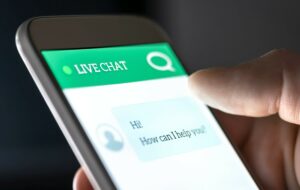Welcome back to engageSPARK’s Sparking Interest, where we dive deep into the latest stories, insights, and innovations that matter to your communication projects.
Did you receive this article from someone else? We invite you to subscribe today to receive updates on fascinating case studies about programs using mobile tools to collect data from hard-to-reach populations HERE.
ICT4D conference in Accra, Ghana.
We had the chance to be a part of the most important event in the humanitarian sector this 2024: the 12th ICT4D conference organized by CRS, which took place in Accra, Ghana earlier this week.
Thank you to everyone who stopped by our booth and said hi. Learning about your stories and getting to know you all in person was fascinating. We look forward to continuing these conversations and exploring how we can collaborate on upcoming impactful projects!
And in case you missed our CEO Avner’s talk – “Robocalls” Is a Dirty Word, But Should It Be? A Deep Dive into R4D: Robocalls for Development” – it was a fun and enlivening discussion! Feel free to reach out if you’d like to learn more about Avner’s ICT4D presentation.
How Johns Hopkins leverages Airtime top-ups for engagement and support
Johns Hopkins University’s Bloomberg School of Public Health is pioneering research on the efficacy of airtime top-ups as incentives in public health surveys across Colombia, Bangladesh, and Uganda.
Utilizing random digit-dialing, they engage millions in IVR, SMS, and WhatsApp surveys to explore if pre-survey airtime incentives boost completion rates. In a notable randomized control trial, participants were divided into groups: one received an initial small airtime top-up, another was promised a larger top-up post-survey without an initial incentive, and a control group received no incentive.
While detailed outcomes of these specific experiments are pending, insights from similar studies by JHU highlight the potential of airtime top-ups in enhancing survey participation.

Build your own humanitarian AI chatbot
WhatsApp offers a cost-effective way to engage with people in LMICs—that’s why it’s so popular!
But even WhatsApp campaigns struggle with a problem you’ll know: you spend weeks designing a campaign, and then people struggle with a single sentence, or you didn’t anticipate that one question.
What if AI chatbots could help with that?
Here are a few examples from the humanitarian field about how your organization might employ chatbots:
- Interactive education
- Emergency hotlines
- Public research and announcements
- Weather warning and safety protocols
- Virtual learning
We combine the ease of WhatsApp chats with smart AI interpretation of responses.
️️️
Scan or click to try our demo


